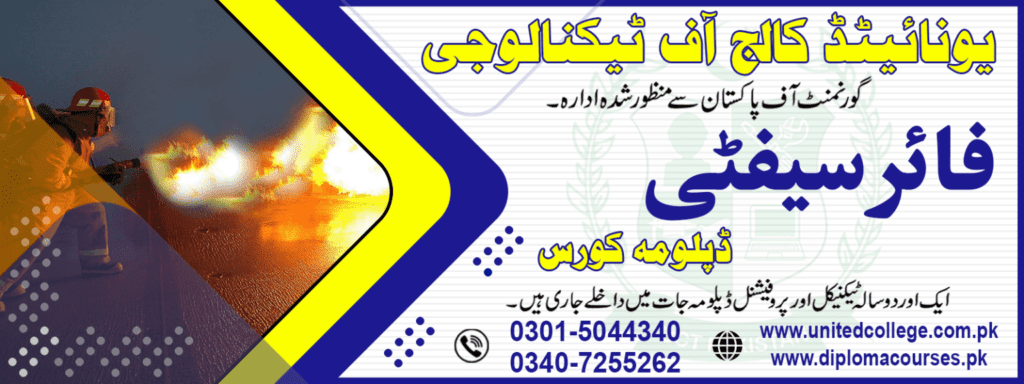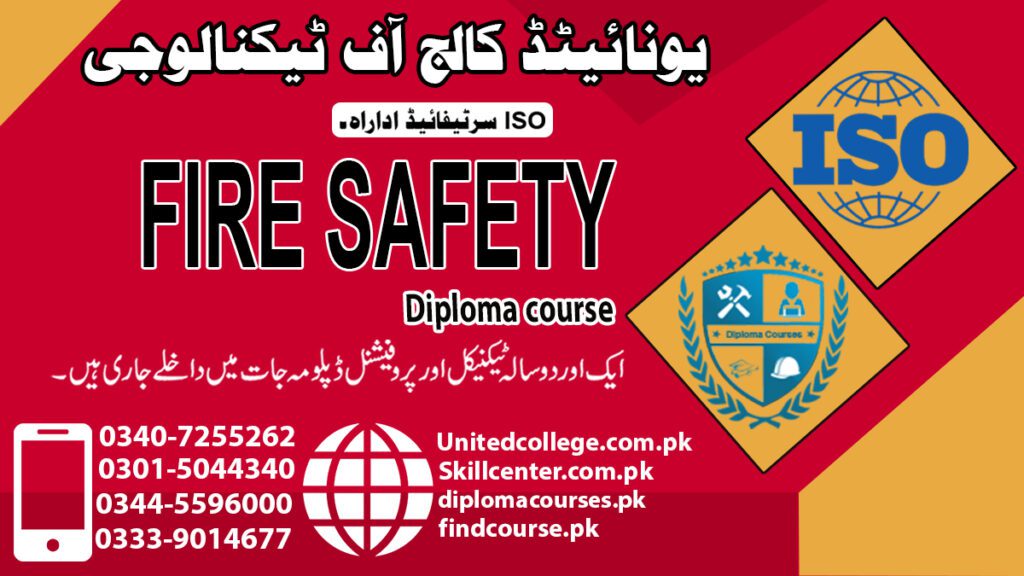
The Importance of Fire Safety Courses in Rawalpindi-Islamabad, Pakistan
Introduction:
In the dynamic urban landscapes of Rawalpindi and Islamabad, safety concerns are paramount, and fire safety stands out as a critical aspect of community well-being. Recognizing the significance of fire safety, several institutions in these cities offer specialized Fire Safety Courses to equip individuals with the knowledge and skills necessary to prevent, respond to, and mitigate fire-related incidents. This article delves into the importance of Fire Safety Courses in Rawalpindi-Islamabad, Pakistan, shedding light on the benefits, curriculum, and the broader impact on community safety.
Need for Fire Safety Courses:
The rapid urbanization and population growth in Rawalpindi-Islamabad have led to an increase in the number of commercial and residential structures. With this growth comes a higher risk of fire incidents, making it imperative for individuals, both civilians and professionals, to be well-versed in fire safety protocols. Fire Safety Courses play a pivotal role in meeting this need by imparting essential knowledge on fire prevention, evacuation procedures, and the effective use of firefighting equipment.
Curriculum Highlights:
Fire Safety Courses in Rawalpindi-Islamabad typically cover a comprehensive range of topics to ensure participants are well-prepared to handle various fire-related scenarios. Some key aspects of the curriculum include:
Fire Prevention Techniques: Understanding the common causes of fires and learning preventive measures is a fundamental part of the courses. Participants are educated on electrical safety, proper storage of flammable materials, and fire risk assessments for both residential and commercial spaces.
Emergency Response and Evacuation Procedures: In the event of a fire, a quick and organized response is crucial. The courses teach participants how to react efficiently during emergencies, emphasizing the importance of evacuation plans, assembly points, and communication strategies to minimize panic.
Firefighting Equipment Operation: Practical training on the proper usage of firefighting equipment, such as fire extinguishers, hoses, and blankets, is a key component. Participants gain hands-on experience, ensuring they can effectively control small fires before they escalate.
First Aid for Fire-Related Injuries: Understanding basic first aid for injuries resulting from fires is an essential skill. Courses often cover treating burns, smoke inhalation, and other injuries that may occur during a fire incident.
Legislation and Regulatory Compliance: Participants are familiarized with local and national fire safety regulations, ensuring that they are aware of the legal requirements for fire safety in buildings and public spaces.
Community Impact:
The impact of Fire Safety Courses extends beyond individual participants, positively influencing the broader community in several ways:
Reduced Fire Incidents: By enhancing the knowledge and skills of individuals in fire safety, the courses contribute to a reduction in the number of fire incidents. This, in turn, helps safeguard lives and property, fostering a safer living environment.
Increased Preparedness: Communities that invest in fire safety education become more resilient to emergencies. The heightened preparedness instilled by these courses enables individuals to respond calmly and effectively, minimizing the potential for casualties and property damage.
Professional Development: Fire Safety Courses are not limited to civilians; they are also valuable for professionals working in fields such as construction, hospitality, and healthcare. Employers benefit from a workforce that is well-versed in fire safety, leading to a safer workplace environment.
Community Awareness: Participation in Fire Safety Courses raises overall awareness within the community about the importance of fire safety. This increased awareness can lead to more proactive measures being taken at the individual and community levels.
Conclusion:
In conclusion, Fire Safety Courses in Rawalpindi-Islamabad, Pakistan, play a crucial role in enhancing community safety. These courses provide individuals with the knowledge and skills necessary to prevent, respond to, and mitigate fire incidents. The comprehensive curriculum, including fire prevention techniques, emergency response procedures, and practical firefighting skills, equips participants to be proactive in ensuring the safety of themselves and those around them. As these courses continue to make a positive impact on individuals and communities, the overall resilience of Rawalpindi and Islamabad to fire-related incidents is significantly strengthened.
Please note that this is a general outline, and the course content may be expanded or customized based on specific requirements or the depth of knowledge desired. The course duration and the amount of time dedicated to each module may vary depending on the instructional approach and the level of detail covered.
Course Fee: 30000
Daily Class: 2 Hours
Course Duration: Three Month
Morning / Evening
Call For Registration: 0344-5596000 / 0333-9014677 / 0340-7255262

